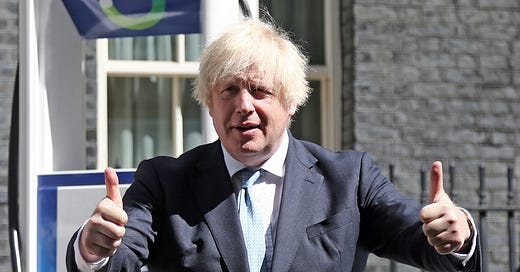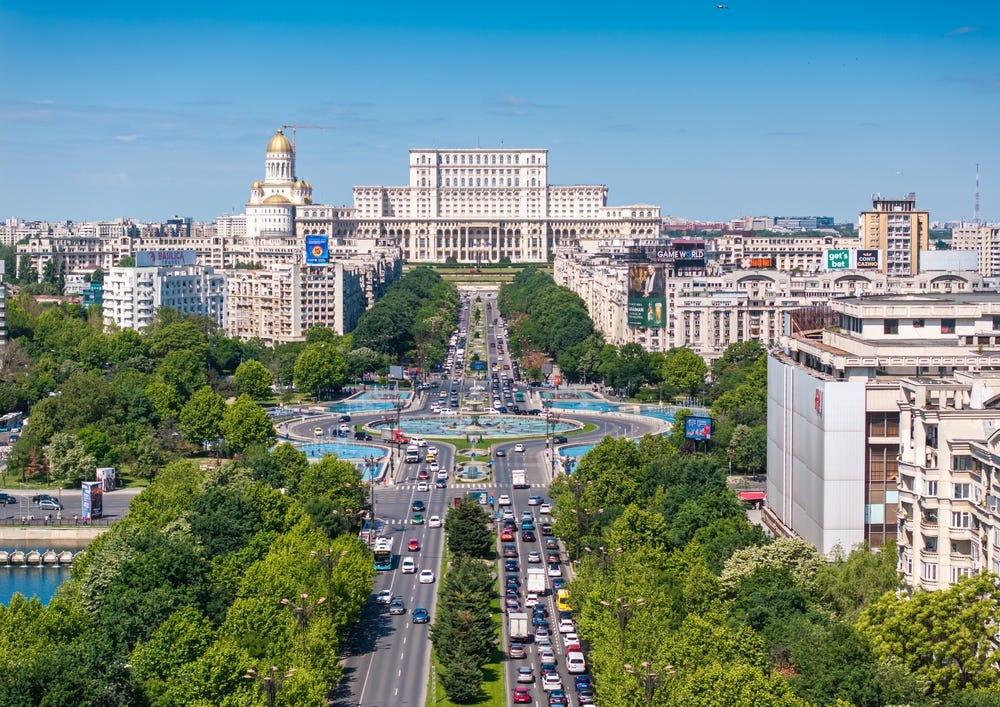Boris Wave brings record high net migration
The political fallout from revised net migration figures poses a challenge to both Labour and the Tories.
Net migration surged to nearly one million people in the year to June 2023, according to revised figures released today by the Office for National Statistics. The independent statistics authority had originally estimated that net migration to the United Kingdom stood at 740,000 during this period, but this has now been revised upwards by 166,000 to 906,000. The ONS said that the original figure significantly underestimated the number of people who would stay in the country for a period longer than twelve months.
In its report on the revised data, the ONS indicated that surging long-term immigration has been caused by a convergence of several factors, including the war in Ukraine, the Hong Kong asylum scheme, pent-up demand for study-related immigration that had been subdued during the pandemic, and the effects of a liberal post-Brexit visa system.
On the flipside, the figures showed that there had been a decline in net migration from 906,000 in the year ending in June 2023 to 728,000 in the year to the end of June 2024.
Responding to the revised figures at a press conference held in Downing Street today, Sir Keir Starmer slammed his Conservative predecessors for the figures. The Prime Minister said: “Policies were reformed deliberately to liberalise immigration. Brexit was used for that purpose, to turn Britain into a one nation experiment in open borders.”
The figures are undoubtedly political dynamite and it is clear that the Conservative Party is acutely vulnerable when it comes to net migration. One of the reasons why the Tories took a such a beating in the recent general election is because they promised for over a decade to bring down net migration figures, only to preside over a record surge in people coming to the country.
There has been no word yet from Boris Johnson, who as Prime Minister relaxed the rules on entry. Critics are already calling it the “Boris Wave”. For all that Brexit was identified with demands for lower immigration, Johnson is ultra-liberal on the subject.
Starmer is clearly trying to ram home this message after the new Tory leader, Kemi Badenoch, said yesterday that her party “got it wrong” on immigration while in office between 2010-2024. Perhaps to reinforce this line of attack, the Labour Party posted a graphic on X this afternoon, stating: “The Tories lost control of our borders. Labour is taking it back.”
However, the triumphal tone is not entirely substantiated by the latest figures. The ONS’s report also makes it clear that the recent fall in net migration has been driven largely by measures introduced by the previous Conservative government under Prime Minister Rishi Sunak. These measures prevented most foreign students from bringing family members with them to the UK. They also banned foreign care workers from bringing family members and doubled the minimum salary required to secure a work visa to £38,700.
Labour also cannot afford to be complacent on immigration policy as a whole. Indeed, if the ONS’s new figures were politically explosive, new Home Office statistics will also add further fuel to the fire of the UK’s immigration debate.
The latest statistics from the Home Office, also published today, revealed that the number of asylum claimants being housed in hotels across the UK increased by at least 6,066 between June-September 2024, although the total number remains well below the peak of 56,042 reached at the end of September 2023. The data also show that Home Office spending on the asylum system rose by £1.43 billion in the 2023/24 financial year and reached a record total of £5.38 billion. This is 36% higher than in 2022/23, when £3.95 billion was spent on the system.
This matters because Starmer’s government has also staked its political capital on tackling illegal migration and has promised to “smash” people-smuggling gangs. This evening, when he was confronted with the soaring cost of Britain’s asylum system, he stated unequivocally: “We must bring the cost of asylum down and we have a manifesto pledge to bring the cost of hotels down, to end the use of hotels”.
The Prime Minister has pledged to shun easy answers and avoid placing an arbitrary number on net immigration figures. Starmer’s supporters will argue that this marks a far more honest approach to a complex issue than that of his predecessors. Critics, however, will argue that emphasising the complexity of the issue can easily become an excuse for inaction.
Above all, public perceptions of control are of the utmost importance. The Prime Minister has made progress in clearing the UK’s backlog of asylum cases and has presided over a decline in the rate of applicants being granted refuge. So long as the net migration numbers continue a downwards trajectory, Starmer can claim with credibility that Labour has restored order to the immigration system.
Yet if net migration surges again, or even stays stubbornly high, Labour also has to worry about Reform. The party is on the tail of Labour in many seats. Its leader Nigel Farage at his own press conference today lambasted the Tories, but he also blames what Reform calls the “uniparty” of the two major parties and says that the surge started long ago under New Labour. The political fallout from today’s net migration figures could hurt Labour as much as the Tories.
Jack Dickens
Reaction Reporter
ON REACTION TODAY
Alexandra Luca
Romanian election shock is a warning to the West
ALSO KNOW
Ukraine infrastructure attacked - The power grid in Ukraine has been hit by Russia in new drone and missile attacks, leaving over a million without power. Vladimir Putin said that Russia had carried out a “comprehensive strike”, which has come after the UK and US supplied Ukraine with weapons last week.
Daniel Khalife found guilty of spying for Iran - A former soldier who escaped from Wandsworth prison in 2023 has been found guilty of spying for Iran. Daniel Khalife had previously been cleared of carrying out a bomb hoax. Prosecutors said he had gathered “a very large body of restricted and classified material” and had claimed that he wanted a career as a British double agent.
Syrian rebels launch offensive - Syrian jihadist rebel forces have launched a surprise large-scale attack against Bashar al-Assad’s regime. This is their first major offensive in four years, reigniting war in the region. Nearly 90 were killed in the fighting including at least one Russian special forces soldier.
Xi Jinping’s military purge - Beijing has stated there is a corruption probe into Miao Hua, one of the five officers who hold top command in China’s armed forces, over “serious violations of discipline.” This is a bid by Xi to ensure loyalty to regime and the party. Miao worked with Xi for years and has been a top leader since 2012. This also comes after it was reported that defence minister Dong Jun was under investigation for corruption.
FIVE THINGS
Curated by the Reaction Team - William Martin
What can stop the cycle of escalation in Ukraine? Joshua Yaffa in The New Yorker.
Can Friedrich Merz change Germany’s course? Andrew Adonis in Prospect.
The future is nuclear, whether Labour like it or not. Sam Richards in CapX.






